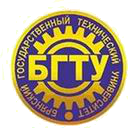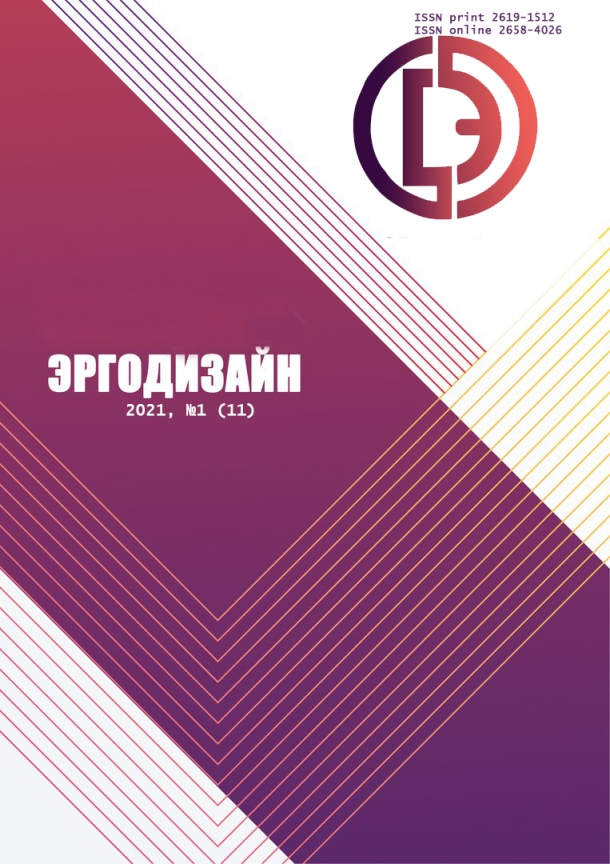Bryansk, Bryansk, Russian Federation
Various classifications of generations associated with historical and physical time are considered. It is shown that the culturological connection of modern Russian generations has a cyclical nature and can be investigated both at the macrolevel from the standpoint of economic sociology, and at the microlevel from the standpoint of economic psychology. The idea is substantiated that the sociodesign of the generation continuity is associated with mental attitudes and life-meaning values that are accepted and shared by different generations. In the pilot study, students and their parents' meaningful values have been determined. Based on the analysis of a number of studies, some trends in forming the values of generation Z and recommendations for teaching generation Z in modern cultural and historical conditions have been identified.
classification of generations, intergenerational differences, life-meaning values, culturological connection, in-tergenerational continuity, socio-design of educational space
1. Abramkina, M.O. Gamification as an Innovative Method of Managing Generation Z in Modern Management [Text] / M.O. Abramkina // Economics and Management: Problems, Solutions. - 2015. - vol. 1. - no. 9. - pp. 203-209.
2. Artsimovich, I.V. Current Generation: Challenges to the Society or Time [Text] / I.V. Artsimovich // Interactive Science. - 2017. - no. 12. - pp. 119-121.
3. Astashova, Yu.V. The theory of Generations in Market-ing [Text] / Yu.V. Astashova // Bulletin of the South Ural State University. Series: Economics and Management. - 2014. - no. 1. - pp. 108-114.
4. Barabanov, R.E. Generation of Likes - Myth or Reality? [Electronic resource] / R.E. Barabanov // Educational Psychology: Scientific Almanac. - 2016. - pp. 134-137. (accessed 12 January 2021).
5. Barlas T.V. Generation “Z”: Problems of Dialogue in the “Teacher - Student” System [Text] / T.V. Barlas // Bulletin of Moscow State Linguistic University. Education and Peda-gogical Sciences. - 2018. - no. 6 (814). - pp. 178-184.
6. Bogacheva N.V. Myths about the “Generation Z” [Text] / N.V. Bogacheva, E.V. Spivak // Modern Education Analyt-ics. - 2019. - no. 1 (22). - pp. 1-64.
7. Bushueva, E.P. The Generation of Millennials: How and Why to Motivate Them / E.P. Bushueva // Economic Horizons. - 2019. - no. 3 (49). - pp. 42-47.
8. Volkova, N.V. Features of Career Choices through the Generation Theory: the Results of Empirical Research [Text] / N.V. Volkova, V.A. Chiker // Bulletin of St. Petersburg Uni-versity. Management. - 2016. - no. 4. - pp. 79-105.
9. Gavrilova, A.V. Social and Psychological Features of the “New Generation” Mentality [Text] / A.V. Gavrilova // Bulletin of Udmurt University. Series: Philosophy, Psycholo-gy, Pedagogy. - 2016. - vol. 26, no. 2. - pp. 58-63.
10. Glotov, M.B. Generation as a Category of Sociology [Text] / M.B. Glotov // Sociological Research. - 2004. - no. 10. - pp. 42-49.
11. Golubinskaya, A.V. The question of generational mod-els Hove-Strauss / A.V. Golubinskaya // International Journal of Humanities and Natural Sciences. - 2016. - no. 1. - pp. 98-101.
12. Gurova, I.M. Theory of Generations as a Tool for Analysis, Formation and Development of Labor Potential [Text] / I.M. Gurova, S.Sh. Evdokimova // WORLD (Moder-nization. Innovation. Development). - 2016. - vol. 7. - no. 3 (27). - pp. 150-159.
13. Zinchenko, V.P. Man in the Space of Time [Text] / V.P. Zinchenko // Personal Development. - 2002. - no. 3. - pp. 23-50.
14. Ilyinsky, I.M. Moscow Students: Changes in Value Orientations [Text] / I.M. Ilyinsky // Friendship of Peoples. Series: Sociology. - 2020. - vol. 20. - no. 1. - pp.50-63.
15. Kovin, E.A. The Theory of Generations in the Context of Sociology of Management [Text] / E.A. Kovin, O. V. Ly-senko // Scientific result. Sociology and Management. - 2019. - vol. 5. - no. 4. - pp. 151-162.
16. Concise Dictionary of Sociology [Text] / Ed. by D.M. Gvishiani, N.I. Lapin. - M.: Politizdat, 1988. - 479 p.
17. Mannheim, K. The Problem of Generations [Electronic resource] / K. Mannheim // New Literary Review. - 1998. - no. 30. - Available at: https:// magazines. gorky. med-va/neo/1998/2 (accessed 20 November 2020).
18. Miroshkina, M.R. Interpretation of the Generation Theory in the Context of Russian Education [Text] / M.R. Miroshkina // Yaroslavl Pedagogical Bulletin. - 2017. - no. 6. - pp. 30-35.
19. Nechaev, N.N. “Digital Generation”: Psychological and Pedagogical Research of the Problem [Text] / N.N. Nechaev, E.E. Durneva // Pedagogy. - 2016. - no. 1. - pp. 31-45.
20. Ozhiganova, E.M. The Generation Theory by N. Hove and W. Strauss. Possibilities of Practical Application [Text] / E.M. Ozhiganova // Business Education in the Knowledge Economics. - 2015. - no. 1. - pp. 94-97.
21. Parmenova, E.O. Using the Theory of Generations in the personnel selection [Text] / E.O. Parmenova // Bulletin of Science and Education. - 2017. - vol. 2. - no. 12. - pp. 66-71.
22. Pishchik, V.I. Generations: Socio-Psychological Analysis of Mentality [Text] / V.I. Pischik // Social Psychology and Society. - 2011. - no. 2. - pp. 80-86.
23. Povarenkov, Yu.P. Periodization of the Professional Development of the Individual: an Analysis of Domestic and Foreign Approaches [Text] / Yu.P. Povarenkov // Yaroslavl Pedagogical Bulletin. - 2014. - no. 3. - pp.200-205.
24. Radaev, V.V. Millennials Compare to Previous Generations: An Empirical Analysis [Text] / VV Radaev // Socialist studies. - 2018. - no. 3. - pp. 15-33.
25. Rykiel, A.M. Socio-Psychological Model of Values among Different Generations in Modern Russian Society [Text] / A.M. Rykiel, S.V. Dorenskaya // Russian Psychological Journal. - 2017. - vol. 14. - no. 4. - pp. 205-225.
26. Savicheva, A.V. Features of the Generation Y's percep-tion of their Professional Development [Text] / A.V. Saviche-va, M.V. Prokhorov // Hopes: Proceedings of students' Scien-tific Articles. - 2019. - pp. 257-265.
27. Sapa, A.V. Generation Z - Generation the GEF Era [Text] / A.V. Sapa // Innovative Projects and Programs in Edu-cation. - 2014. - no. 2. - pp. 24-30.
28. Spasennikov, V.V. The First All-Russian Conference “Psychology and Economics” (February 3-5, 2000) [Text] / V.V. Spasennikov, E.Kh. Lokshina, V.M. Sokolinsky // Bulletin of the Russian Foundation for the Humanities. - 2001. - no. 4. - pp.151-158.
29. Spasennikov, V.V. Problems in Formation of National and Economic Identity of Modern Youth [Text] / V.V. Spasennikov // Socio-Humanitarian Bulletin. - 2015. - no. 1 (14). - pp.19-24.
30. Spasennikov, V.V. Academic Fraud and Motivation of Modern Universities Students' Educational Activities [Text] / V.V. Spasennikov, K.Yu. Androsov // Ergodesign. - 2020. - no. 2 (8). - pp.72-80.
31. Sudarik, A.N. Ergonomic Support for the Modern Educational Environment [Text] / A.N. Sudarik // Sociology of Education. - 2013. - no. 12. - pp. 42-90.
32. Sukharev, O.S. Transformation of Higher Education: Overcoming the Conflict of Competences and Fundamentals [Text] / O.S. Sukharev, V.V. Spasennikov // Ergodesign. - 2020. - no. 3 (9). - pp. 107-119.
33. Chernikov, B.V. Differentiation of Labor Values among Generations of Modern Workers [Text] / B.V. Chernikov // Bulletin of Tomsk State University. - 2014. - no. 385. - pp. 153-158.
34. Chilipenok Yu.Yu. Three Generations of Russian Workers: Labor Practices Study [Text] / Yu.Yu. Chilipenok // Bulletin of the Volga Institute of Management. - 2015. - no. 3 (48). - pp. 79-85.
35. Shamis E. The Theory of Generations [Text] / E. Sha-mis, A. Antipov // Marketing. Management. - 2007. - no. 6. - pp.42-46.
36. Shamis E. The Theory of Generations. Unusual X [Text] / E. Shamis // M.: University of Synergy: School of Business, 2017. - 138p.
37. Shkurenko, T.I. Value Orientations of Representatives of Junior, Middle and Senior Generation Groups at the Present Stage [Text] / T.I. Shkurenko // Bulletin of Kostroma State University named after N.A. Nekrasov. Series of Pedagogy. Psychology. Social work. Juvenology. Sociokinetics. - 2008. - vol. 4. - no 3. - pp.175-180.
38. Shurbe, V.Z. Generation as a Subject of Formation and an Object of Interaction [Text] / V.Z. Shurbe // Siberian Psy-chological Journal. - 2012. - no. 8. - pp. 155-160.
39. Inglehart, R. The silent revolution in Europe: intergene-rational change in post -industrial societics [Text] / R. Ingle-hart // American Political Science Review. - 1971. - №65. - p. 991-1017.
40. Kreiner, G.E. Evidence toward an expanded model of organizational identification [Text] / G.E. Kreiner, B.E. Ash-forth // Journal of Organizational Behavior. - 2004. - Vol. 25, №1. - P. 1-27.
41. Lyons, S.T. Generational differences in the workplace: A review of evidence and directions for future research. [Text] / S.T. Lyons, L.K.J. Kuron // Journal of Organizational BehaBa, R.J. Blomme, R.Schalk // Oxon: Routledge. - 2015. - P. 37-51.
42. Strauss, W. Generations: the history of America’s fu-ture, 1584 to 2069. [Text] / W.Strauss, N. Howe // New York: Quill William Morrow. - 1991. - 554 p.
43. Strauss W. The Fourth Turning: An American Prophecy - What the Cycles of History Tell Us About Americas Next Rendezvous with Destiny [Text] / W.Strauss, N. Howe. - New York: Broadway. - 1997. - 382 p.
44. VanMeter, R. Generation Y's Ethical Ideology and Its Potential Workplace Implications [Electronic Resource] / R. VanMeter, D. Grissafe, L. Chonko, J. Roberts / / Journal of Business Ethics. - 2013. - Vol. 117. - No. 1. - P. 93-109. - URL: https://link.springer.com/article/10.1007%2Fs10551-012-1505-1 (Accessed 20.12.2020).
45. White, J. Thinking generation [Text] / J. White // Brit-ish Journal of Sociology. - 2013. - vol 64(z). - P. 21-47.












